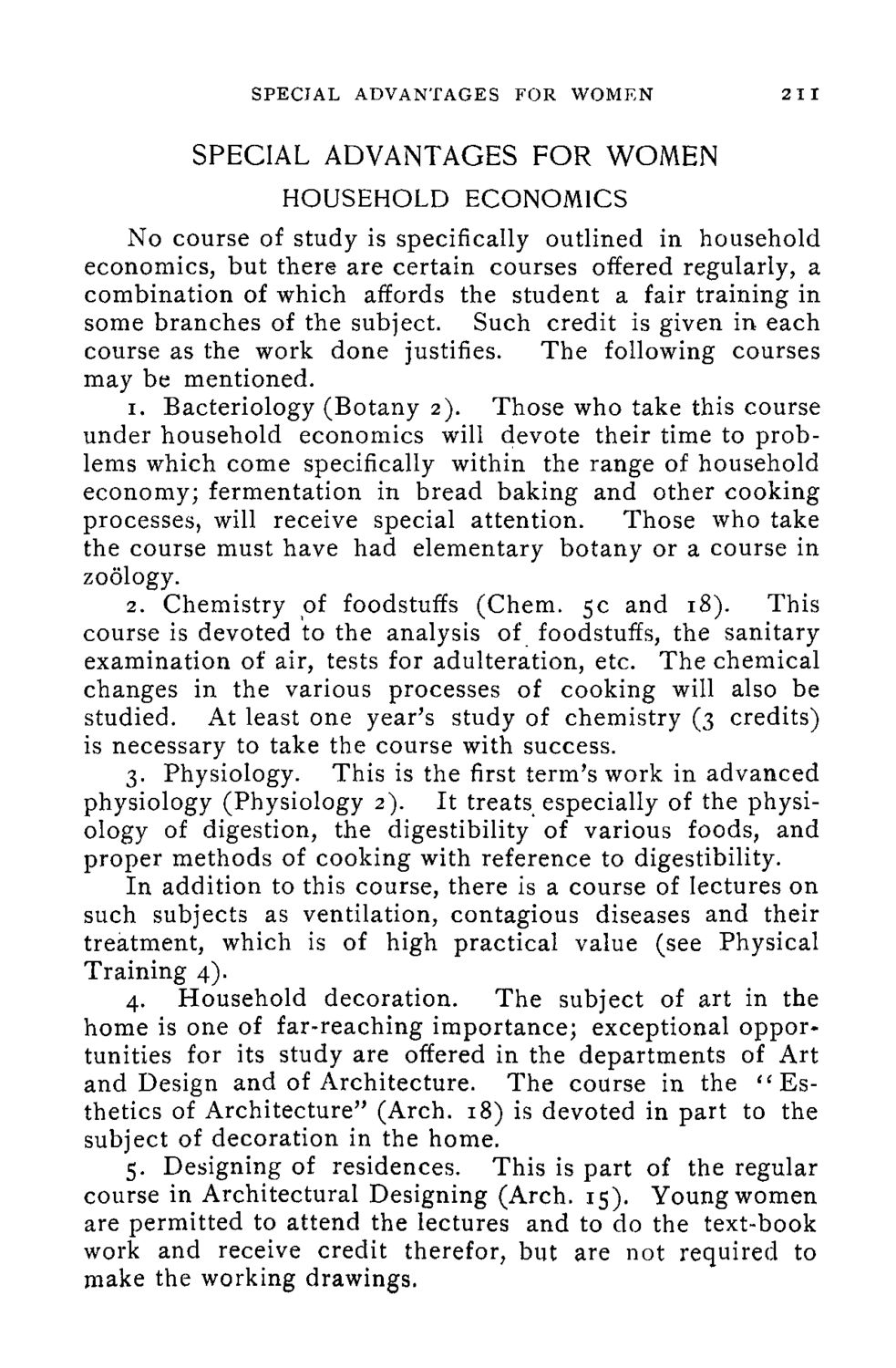| |
| |
Caption: Course Catalog - 1896-1897
This is a reduced-resolution page image for fast online browsing.

EXTRACTED TEXT FROM PAGE:
SPECIAL ADVANTAGES FOR WOMEN 211 SPECIAL ADVANTAGES FOR WOMEN HOUSEHOLD ECONOMICS No course of study is specifically outlined in household economics, but there are certain courses offered regularly, a combination of which affords the student a fair training in some branches of the subject. Such credit is given in each course as the work done justifies. The following courses may be mentioned. 1. Bacteriology (Botany 2). Those who take this course under household economics will devote their time to problems which come specifically within the range of household economy; fermentation in bread baking and other cooking processes, will receive special attention. Those who take the course must have had elementary botany or a course in zoology. 2. Chemistry of foodstuffs (Chem. 5c and 18). This course is devoted to the analysis of foodstuffs, the sanitary examination of air, tests for adulteration, etc. The chemical changes in the various processes of cooking will also be studied. At least one year's study of chemistry (3 credits) is necessary to take the course with success. 3. Physiology. This is the first term's work in advanced physiology (Physiology 2). It treats especially of the physiology of digestion, the digestibility of various foods, and proper methods of cooking with reference to digestibility. In addition to this course, there is a course of lectures on such subjects as ventilation, contagious diseases and their treatment, which is of high practical value (see Physical Training 4). 4. Household decoration. The subject of art in the home is one of far-reaching importance; exceptional opportunities for its study are offered in the departments of Art and Design and of Architecture. The course in the "Esthetics of Architecture" (Arch. 18) is devoted in part to the subject of decoration in the home. 5. Designing of residences. This is part of the regular course in Architectural Designing (Arch. 15). Young women are permitted to attend the lectures and to do the text-book work and receive credit therefor, but are not required to make the working drawings.
| |